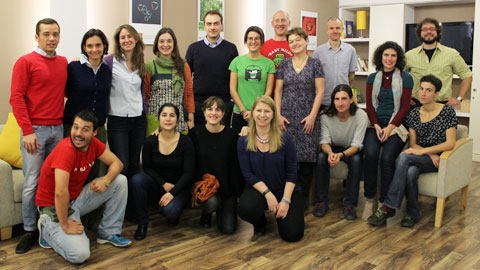European project to use performing arts to foster young people's interest in science
The PERFORM project, coordinated by ICTA-UAB, will study the use of educational methods based on the performing arts to improve secondary pupils' attitudes towards science. The project is part of the European Commission's Horizon 2020 programme, and has 1.9 million Euros in funding.

From now until 2018, the project will study the effects of innovative methods based on performing arts, such as theatre, clowns, or street shows, to engage young people in science, technology, engineering and mathematics at various secondary schools in Barcelona, Paris and Bristol (UK).
The project members met in Barcelona from 16 to 18 November to present the different proposals for activities and decide on ways to implement these. According to the latest European Commission surveys (Eurobarometer), a high percentage of young Europeans are not interested in studying science because they regard it as something remote from their daily lives and requiring skill sets they do not have.
These negative attitudes lead teenagers to devote little time and effort to learning science and to underestimate its role in society. For this reason, "it has never been so urgent in Europe to get young people involved in science, technology engineering and mathematics” in order to prevent the loss of scientific talent and maintain our capacity for innovation, excellence and competitiveness.
The PERFORM project, with total funding of 1.9 million Euros, will attempt to bridge the gap between young people and science, and break with the one-way model of knowledge transfer in science. It will explore the creative, participative teaching of scientific topics through the use of the performing arts with secondary pupils, their teachers and junior researchers. The aim is to involve the pupils actively in scientific experiments and get them to reflect on their own role in the interaction between science and society and on the implicit values of responsible research and innovation. PERFORM will analyse how a science–arts approach to education, focusing on the individual, can help motivate young people to learn science and at the same time build up the transferable competences they will need in their future careers and contribute towards a more democratic knowledge society.
The teachers and researchers will be given specific training in the communicative and educational skills they will need in this process.